Valheim review: a challenging and rewarding Early Access survival adventure
Explore, craft, build, fight, and survive in a massive and engaging open world.
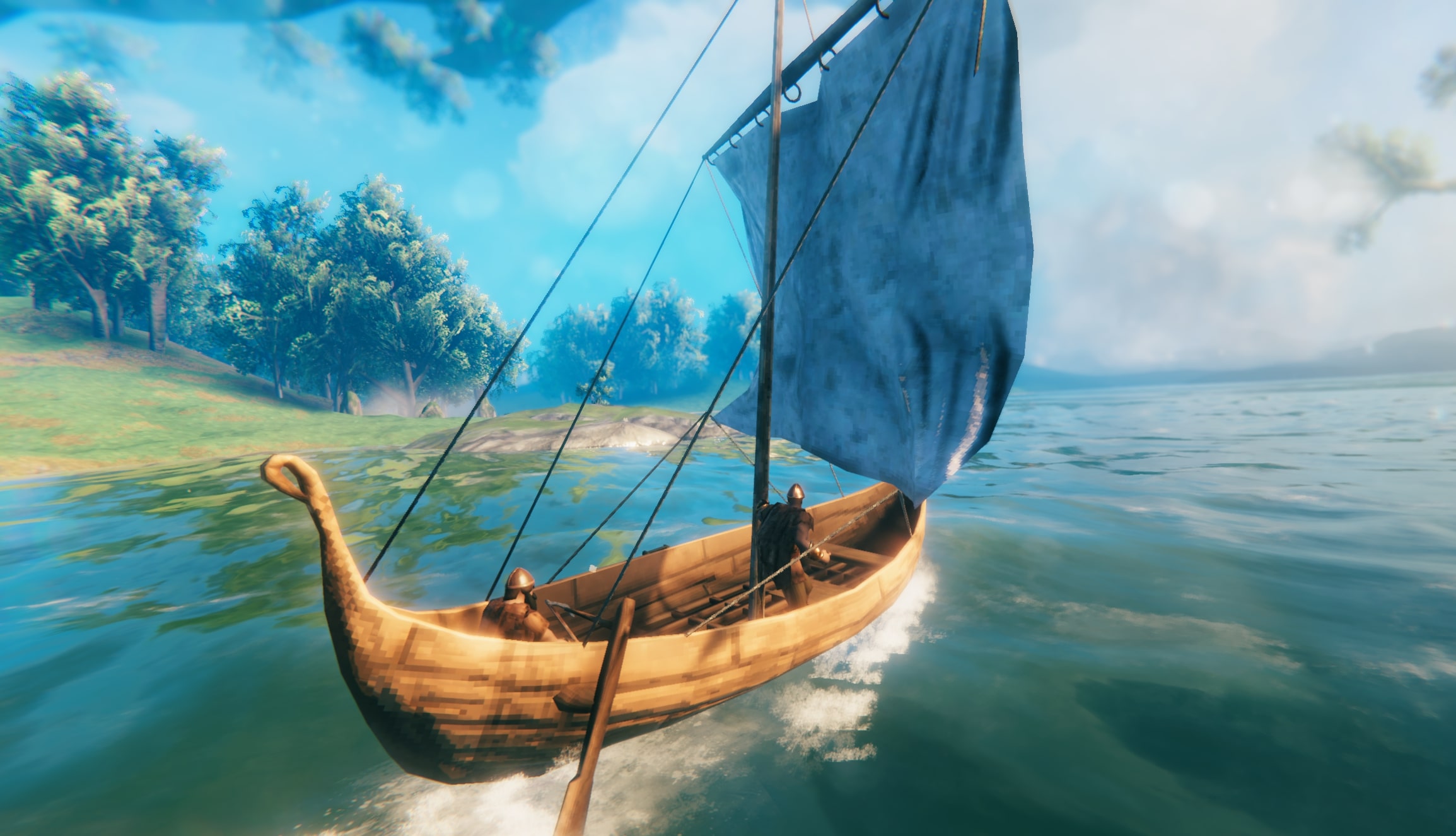
What is it? A Viking-themed survival adventure in a procedurally generated open world.
Expect to pay $20/£15.49
Developer Iron Gate Studios
Publisher Coffee Stain Publishing
Reviewed on RTX 2080, Intel i7-9700K , 16GB RAM
Multiplayer? Co-op for up to 10 players
Link Official site
It's my first trip across the ocean on my tiny wooden raft and I'm holding my torch nervously as I peer through the pitch-black night. I feel intensely vulnerable. I've never left my starter island before and I have no idea what's waiting out there in Valheim's massive procedurally generated world. After a long, tense night of sailing I finally set foot on a new continent, and immediately discover what looks like a village. That's a surprise—I didn't know there were villages in Valheim. The village is full of draugrs. I didn't know there were draugrs, either.
The mob of undead warriors bash me with axes and bombard me with arrows. I flee and sail home miserably with little to show for my hours of exploration save for badly degraded weapons and armor and a few draugr entrails from the two I managed to slay. I decide I'm never going back there. Ever. But the discovery of draugr intestines has given me a new recipe for sausages, so I stuff the rotting entrails with boar meat and flavor them with thistle in my cauldron. Then I eat them, my eyes widening as my health bar grows to twice the size it's ever been.
I am going back to the draugr village immediately. I need more sausages. I am now in the sausage business.
In Valheim, which is still in Early Access, you're a dead Viking warrior. Your soul has been deposited in the afterlife so you can battle the enemies of Odin, powerful creatures such as a towering giant made from tree trunks and a toxic swamp blob that emits great clouds of poison.
But before you can do Odin's work, you've got to do dozens of hours of your own labor: building a home, crafting weapons and gear, leveling up skills, unlocking crafting recipes, and slowly exploring deeper and deeper into the huge, dangerous world. It may not sound all that different from other open world survival sandboxes, but Valheim is an utterly engrossing experience that blends thoughtfully-designed survival systems with exciting RPG-like adventures, where each small nugget of progress sets the stage for the next.
Odin's blood
The sausages are a good example. Unlike most survival games, you won't starve to death in Valheim if you don't eat, but you absolutely need to eat. The right foods dramatically boost your tiny health bar and increase your stamina, so you won't get far without spending some time in the kitchen. The draugr village (I've now found and cleared out three of them) not only supplies me with sausage ingredients but some buzzing bees I can use to farm honey, which I can use for mead-making. Mead, which requires a few days of fermenting, can give me poison and frost resistance, allowing me to enter the toxic swamps and freezing mountain biomes. Which leads to new discoveries, which leads to new recipes, which leads to more new discoveries.
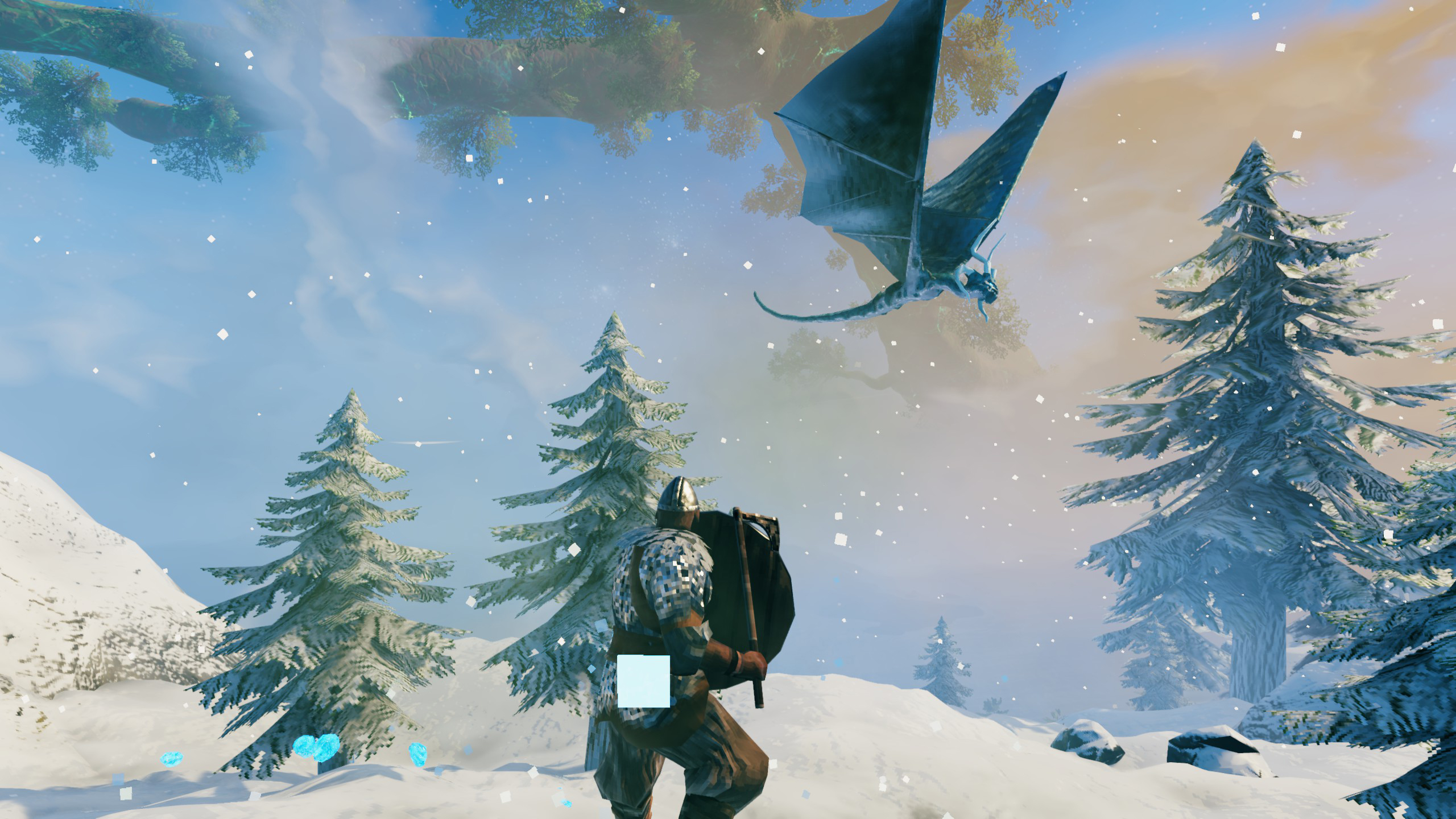
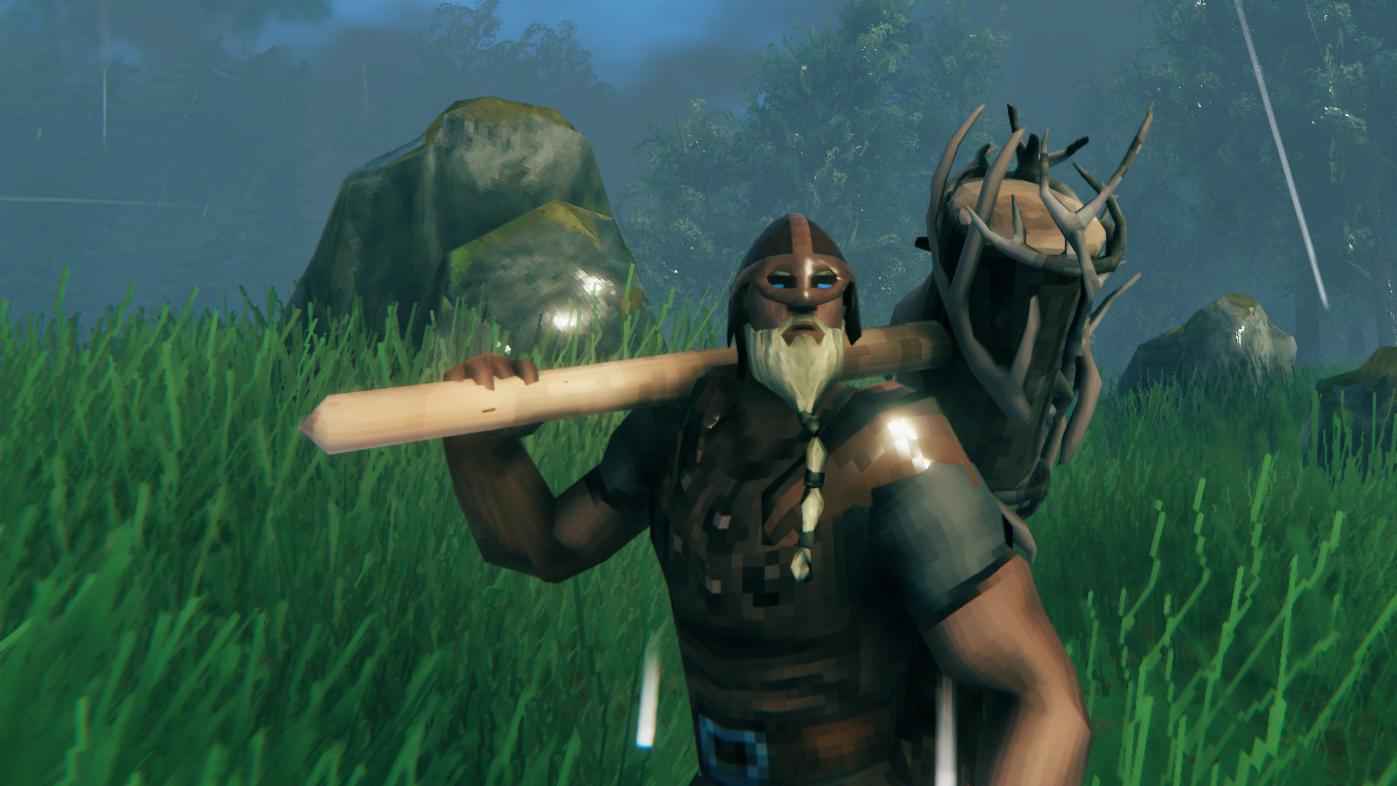
Valheim workbench: How to build and upgrade it
Valheim dedicated server: How to get one working
Valheim copper: How to get it
Valheim map: The best world seeds
Valheim seeds: How to plant them
Valheim iron: How to get it
Valheim boar: How to tame one
Valheim armor: The best sets
Valheim commands: Handy cheat codes
And a whole lot of deaths along the way. There's not so much a difficulty curve to Valheim as there are towering, razor sharp difficulty spikes. That feels frustrating initially, but eventually, and weirdly, it becomes encouraging. Just setting foot somewhere you're not ready for, like that draugr village or a swamp crypt or a frigid mountainside, can brutally punish you, but also give you new goals and a tantalizing glimpse of future possibilities. When I first discovered a new biome, The Plains, I had roughly one second to admire the view and swelling music before a deathsquito buzzed across the screen and into my side, taking more than half my health away with one jab. I fled immediately, though I managed to kill the insect, gaining a needle, which gave me the crafting recipe for a deadlier type of arrow. I may not be ready to return, not for a long while. But I know I will, and I'm now eager to progress to the point where I can.
The biggest gaming news, reviews and hardware deals
Keep up to date with the most important stories and the best deals, as picked by the PC Gamer team.
Strength in numbers
Playing with friends gives Valheim a wonderful communal feeling
I've split my time in Valheim between solo play and adventuring on a server with some other PC Gamer writers, and while they're both rewarding, playing with friends gives Valheim a wonderful communal feeling. We've built a small settlement with several buildings, we share resources and discoveries, take on boss fights together, and help each other out with personal missions and goals.
One of those missions was a rescue and recovery operation. Steven had also discovered the Plains biome while on a long solo boating trip. A deathsquito fatally welcomed him to the neighborhood, killing him right on his ship, so after he respawned back at our base we both set out on a second ship to recover his gear and boat.
It was a long sail, made more complicated when a sea serpent, the first we'd ever encountered, attacked us in the middle of the night. While I shot the creature with flaming arrows Steven took us to shore, fearing our boat would be destroyed. Once on land we were mobbed by growling greydwarfs while the serpent continued attacking our ship. We finally, frantically, dealt with both threats and we set off again, only for me to realize I hadn't brought enough resources to build the fast-travel portal I had planned in case everything went wrong and we needed to return quickly.
So, we had to make another stop for me to collect wood in the darkness of night while Steven built a workbench to repair the damage the serpent had done to the ship. When we finally reached the area where Steven had lost his boat and loot, we crept along the shore slowly into The Plains, our eyes scanning the skies for more deathsquitos—to the point we didn't notice the little green goblin who came charging out, whacking us with its club and doing more damage than a twenty-foot troll does. The fucking Plains, man.
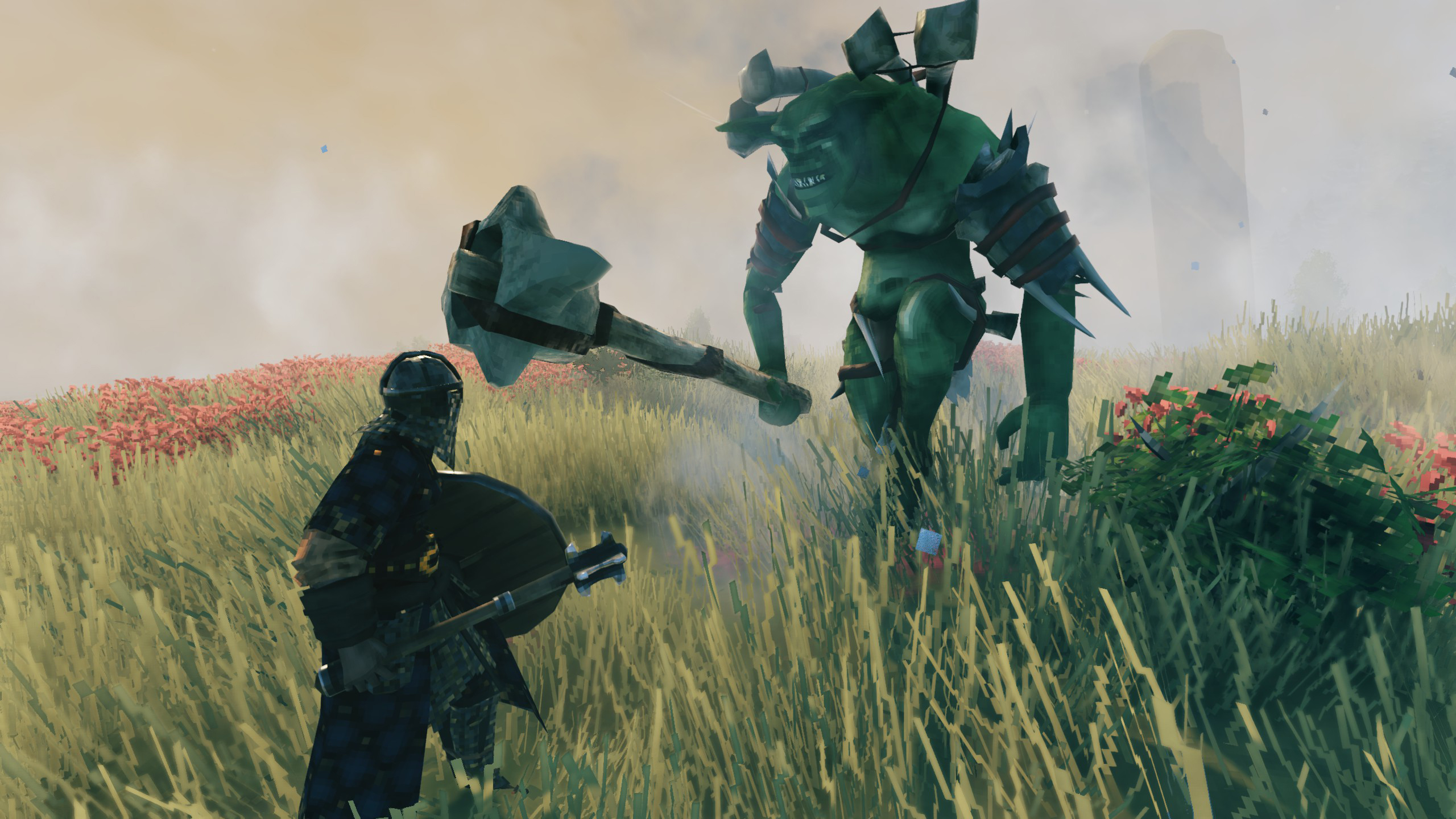
After another mad scramble we killed the goblin, recovered Steven's gear, and had a delightful and peaceful sail back home, each in our own boats. It was a genuinely exciting adventure, with one extra bonus: I now had serpent meat, which gave me the recipe for serpent stew, a fantastic new health and stamina boosting food that has me sailing our boat aimlessly around just hoping to be attacked so I can gather more sea-snake meat. We're currently preparing to take down the next boss on our list, but I'm also planning to completely redesign my house, which was workshop focused, to be a more efficient food and mead preparation zone. Move over, sausages.
Not since survival RPG Outward have I been more aware of the importance of preparation before stepping out of the house: Carefully packing to make sure I've got just the right items in my tiny inventory. Cooking enough food and mead to boost resistances and lift stamina and health as high as it can go. Repairing every weapon and piece of armor and checking recipes for things I might need to craft on the fly. It makes a quick trip into the swamps for iron or an excursion into the mountains for obsidian feel like a proper campaign mission, even though there is no real campaign in Valheim.
Just reaching a boss with the resources you need to summon them is an adventure in itself
Bosses, however, provide some structure to the otherwise open-ended adventure. Finding them takes a ton of exploration, as only certain runestones will show their location on your map—and a boss might wind up several continents away from your starting island. Just reaching a boss with the resources you need to summon them is an adventure in itself. And the boss battles are long, challenging bouts accompanied by music and effects that really make you feel like you're in a dramatic showdown with angry gods. Each boss drops an item you'll need to begin the long process of preparing to take down the next one.
Valheim is a gorgeous game, too, imaginatively blending pixelated textures and fairly simple models and animations with beautiful lighting and environmental effects that make me stop what I'm doing to admire the sunset or bask in the daunting power of a thunderstorm. The only places I don't enjoy in Valheim are the subterranean zones. In the burial chambers, troll caves, and swamp crypts, the beautiful and complex procedural generation of the world is replaced with cramped rooms, narrow corridors, and ugly textures. But that's just a small blemish in a large world I'm still restlessly exploring.
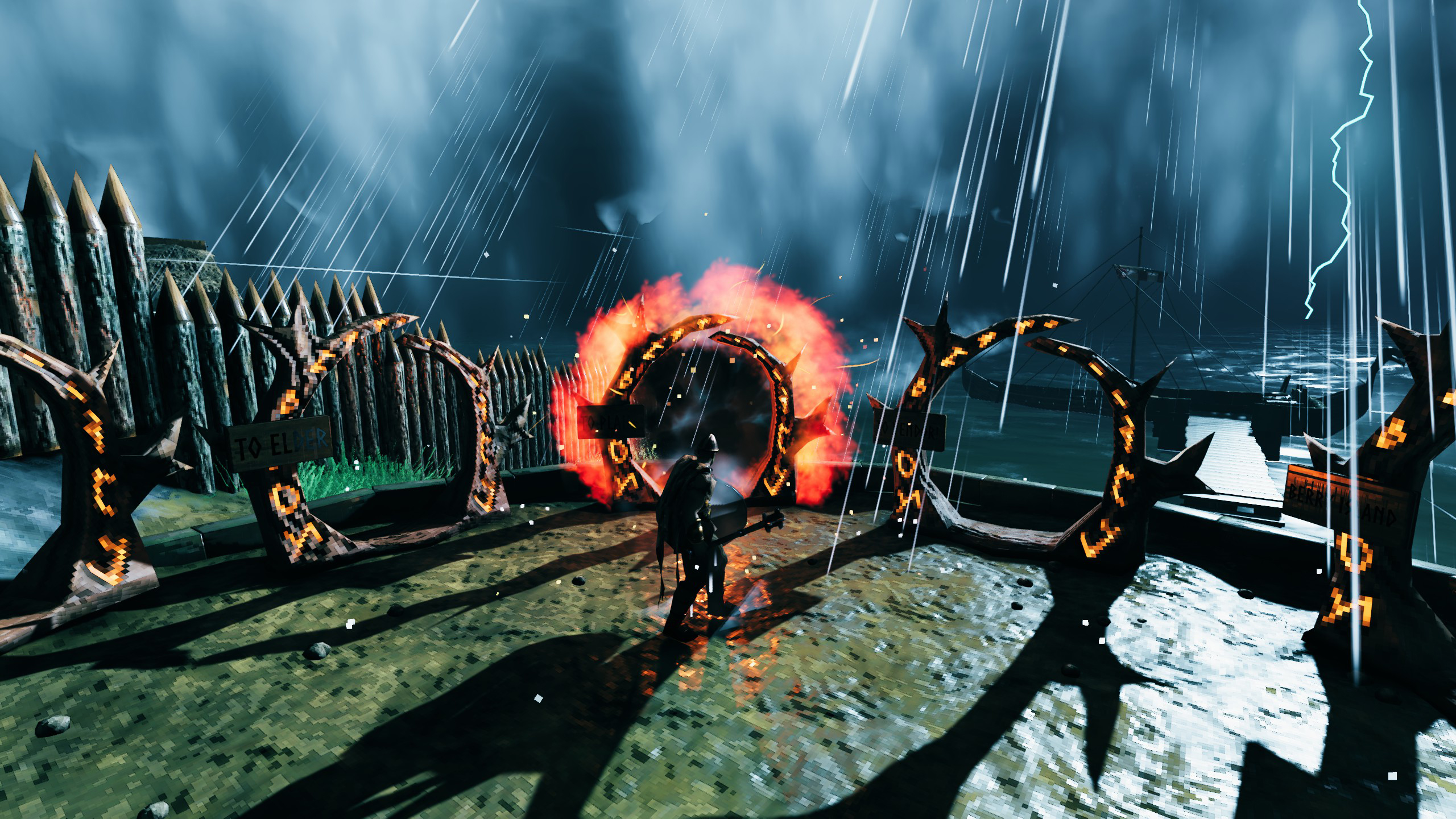
Under construction
Valheim feels refined and satisfying as it is right now
I've bought lots of unfinished Early Access games in the past decade, and loved plenty of them, but typically I draw the line at recommending them. It's impossible to predict exactly how long games will remain in Early Access, what direction the development will take during that time, what might change along the way and how those changes will make the game better or worse. Spending money in Early Access is a gamble, always, and while I do it myself, it's just not something I'm usually comfortable recommending to others.
Valheim might be the rare exception. The game as a whole is not complete, but the parts that are there do feel complete, if that makes sense. I can see the areas in which I'd like it to grow, but Valheim feels refined and satisfying as it is right now. I've put 70 hours into it so far, and I fully expect to at least double that, and it's a $20 game. No matter what happens in Early Access, it's hard not to feel like I've already gotten my money's worth.

Chris started playing PC games in the 1980s, started writing about them in the early 2000s, and (finally) started getting paid to write about them in the late 2000s. Following a few years as a regular freelancer, PC Gamer hired him in 2014, probably so he'd stop emailing them asking for more work. Chris has a love-hate relationship with survival games and an unhealthy fascination with the inner lives of NPCs. He's also a fan of offbeat simulation games, mods, and ignoring storylines in RPGs so he can make up his own.

